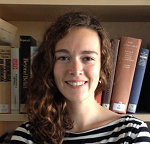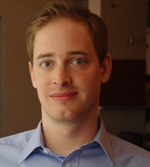- The Institute
- Research
- Dictatorships in the 20th Century
- Democracies and their Historical Self-Perceptions
- Transformations in Most Recent History
- International and Transnational Relations
- Edited Source Collections
- Dissertation Projects
- Completed Projects
- Dokumentation Obersalzberg
- Center for Holocaust Studies
- Berlin Center for Cold War Studies
- Publications
- Vierteljahrshefte
- The Archives
- Library
- Center for Holocaust Studies
- News
- Dates
- Press
- Recent Publications
- News from the Institute
- Topics
- Munich 1972
- Confronting Decline
- Feminist, Pacifist, Provocateur
- Der Mauerbau als Audiowalk
- Digital Contemporary History
- Transportation in Germany
- Envisaged Futures at the End of the Cold War
- From the Reichsbank to the Bundesbank
- German Federal Chancellery
- History of Sustainabilities: Discourses and Practices since the 1970s
- Changing Work
- Democratic Culture and the Nazi Past
- The History of the Treuhandanstalt
- Foreign Policy Documentation (AAPD)
- Dokumentation Obersalzberg
- Hitler, Mein Kampf. A Critical Edition
- "Man hört, man spricht"
- Printversion

Tomasz Frydel (University of Toronto; Supervisors: Piotr Wróbel, Doris Bergen) M.A. an der Brandeis University bei Antony Polonsky und Joanna Michlic und B.A. an der Rutgers University. Er ist von September bis November Fellow im Joint Fellowship Programm des Zentrums mit dem USHMM, wobei er die erste Hälfte in München, die zweite Hälfte in der Berliner Abteilung des IfZ in Lichterfelde verbringt.
Tomasz Frydel über sein Dissertationsprojekt und seinen Aufenthalt als Fellow in München und Berlin:
My research examines the destruction of Jews in the Polish countryside during the Second World War by a complex of local structures, including fire brigades, night guards, partisan units, village heads, peasant search parties and the Polish “Blue” Police. The research places great emphasis on the latter, because - apart from German authorities - the Polish Police would come to play a key role in hunting down fugitive Jews on the local level from 1942-1945, following Operation Reinhard in a broader process that came to be known as “Judenjagd.” The Polish Police was reinstated by Nazi Germany on October 1939 and served primarily to keep law and order in the Generalgouvernement. However, as the Holocaust began to unfold in Poland, the Police was increasingly drawn deeper into various aspects of the process. By some estimates, its manpower ranged from 14,000-16,000. My research is built around a regional case study that explores three counties in Distrikt Krakau of the Generalgouvernement: Dębica, Rzeszów (Reichshof) and Jasło. As a Fellow of the Institut für Zeitgeschichte, I am exploring the relationship between the Polish Police, the local German administration, and the “Volksdeutsche” community in the region from the point of view of German sources. I will take advantage of both the Munich and the Berlin-Lichterfelde branches of the Institute in my three-months time as a Fellow.

Dana Smith (Queen Mary, University of London; Leo Baeck Institute, London), die ihren M.A. an der University of Vermont und B.A. am Centre College machte, ist von September bis Dezember am Zentrum zu Gast, um ihr PhD-Projekt über den Jüdischen Kulturbund in Bayern von 1934 bis 1938 voranzutreiben.
Dana Smith über ihr Projekt und ihre Arbeit am Zentrum für Holocaust-Studien:
My research covers the "Jüdischer Kulturbund in Bayern" (1934-1938) and the role of Jewish cultural life under pre-war National Socialist persecution. The majority of my research analyses the internal debates within the Bavarian Jewish community that shaped a local understanding of "Jewish" culture. However, while at the IfZ - Zentrum für Holocaust-Studien I will focus on the process of National Socialist censorship and surveillance of Kulturbund events in the ten local Bavarian Kulturbund Ortsgruppen. Relatively little is known about the development and implementation of NS Jewish cultural policy, particularly in areas outside of Berlin. In Bavaria, the Bayerisches Staatsminsterium für Unterricht und Kultus maintained overall state control of censorship of the Bavarian Kulturbund, coordinating their efforts at surveillence with the Bayerische Politische Polizei and local police forces. I hope to use my time here to clarify the process of censorship and surveillance and to identify the key individuals involved in these processes.

Adam Gellert (Hungary), researcher, "Partners in Crime. The German-Hungarian Solution of the Jewish Question in Hungary in 1944."
My project analyzes the various German and Hungarian administrative processes that led to the partial extermination of the Hungarian Jews in 1944 and 1945. I study the mechanism of destruction within the theoretical framework of collaboration: the intertwined German-Hungarian administrative processes, the components of these apparatuses and their daily interactions. I analyze how the accumulated German technical knowledge of extermination was used so effectively in Hungary and to what extent did Hungarian agendas influence this process. I am interested in the relationships between German and Hungarian actors, the changing interactions between different Hungarian agencies and their impact upon each other. I scrutinize the contribution of various, internally divided actors and ask as to what degree they strengthened, complemented or weakened each other. I take a detailed look at the German security services, *Sondereinsatzkommando* Eichmann, the Higher SS and Police Leader, the Plenipotentiary in Hungary and the Wehrmacht occupational forces. From the Hungarian side I focus at Horthy and his advisors, the successive Hungarian governments (Sztójay, Lakatos, Szálasi), the key figures within the Ministry of Interior, the Ministry of War, the Ministry of Agriculture and Commerce, the leaders of gendarmerie and police, and leaders of the main political parties.
During my fellowship, I am going to work with sources at the IfZ, Staatsarchive München, Politisches Archive and Bundesarchive Lichterfelde in Berlin.

Elisabeth Büttner (Poland), Ph.D. "German Prisoners in the Auschwitz Concentration Camp 1940-1945".
Büttner conducted research at the Institut für Zeitgeschichte and the archive at the Dachau Memorial Site for her dissertation project “German prisoners at the Auschwitz concentration camp 1940-1945”. She works with concentration camp survivors in Auschwitz and Krakow.


